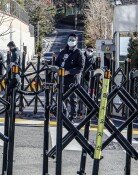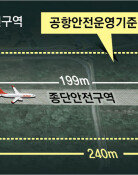Read Symptoms Right to Avoid Serious Disease
Read Symptoms Right to Avoid Serious Disease
Posted September. 19, 2004 22:12,

Hangawui (Korean Thanksgiving Day) is around the corner, and I do want to visit my hometown with both hands full of presents. However, my finances are not on my side. I feel very sorry for not fulfilling my filial piety, incapable of bringing my parents to the hospital for checkups.
If you dont feel affluent, you can substitute your sincerity instead. On the coming Chuseok (another name for Thanksgiving Day) why dont we take a careful look at our parents complexion and attitude for possible symptoms of illness? If any symptoms are noticed, you should help them to the hospital right away.
Often the symptoms of cerebral apoplexy (stroke) go away within a day, so people fail to read them correctly. But 30 to 50 percent of patients experience cerebral apoplexy reoccurring within two days. The rest of patients who have the short symptom cant be relieved.
▽ Do you feel dizzy? = I am having nausea. I feel dizzy even when I lie down with eyes closed. Two identical things simultaneously appear to my vision. I totter as if I am drunk. Suddenly I cant speak, only stammer. I cant see clearly, especially my left (or right) sight is blurry.
All above are cerebral apoplexy symptoms related to dizziness. If you experience one or two of these symptoms, you should see a doctor immediately.
How strongly does the stroke patient feel the dizziness? One patient said, The ceiling spins around as if it were a top. However, when they feel dizzy while moving parts of their bodies such as head or standing up, this signals a problem in the equilibrium organ in the ears. And dizziness that is not serious enough to stop your daily activities has nothing to do to with cerebral apoplexy, but is caused by nerve problems.
▽ Are your hands and feet paralyzed? Paralysis is a common symptom for stroke patients; about 70 percent suffer from paralysis. Over 90 percent of patients undergo paralysis only in half part of their bodies. Sometimes they have a weak or asleep arm and leg, rather than both arms and legs.
If both hands and feet are numbed, the cause might be from damage to the nervous system caused by a complication of diabetes. If patients feel sore in their wrists only at night, peripheral nerves might be blocked. If hands and feet turn pale and cold, this is caused by circulation problems in arteries in arms and legs. Having numb hands and feet the next morning after a drinking binge has nothing to do with strokes.
▽ Do you have a headache? = If you suffered a strong, thunder-like headache, you should worry about the possibility of cerebral apoplexy. This intense level of headache is one of the important symptoms of cerebral apoplexy.
Migraine has nothing do to with cerebral apoplexy. Only three out of 100,000 stroke patients have the symptom of migraine. Having a tense back of the head has nothing to do with stroke either. According to research, 95 percent of patients who suffered tense backs of the head didnt develop into stroke patients. If you have serious pain at the back of your head, it hints at a possibility of a regressive order in the spinal column adjacent to your neck.
▽ Do you have a pain in your chest? = If you had a pain like cleaving the center of your chest accompanying a high pressure, this might be caused by myocardial infarction. Myocardial infarction happens when the inner part of the artery in your heart providing blood gets blocked. As a result the heart stops pumping. Having pain in the chest is the most common symptom for myocardial infarction.
If you suffer serious pain in the chest in your daily lives as well as during the exercise, you should go and see a doctor. Watch out when you have a pain especially at the following times: when you sleep, when you get cold wind in the morning, and when you get excited. You should check whether you have the four major causes of myocardial infarction, which are high cholesterol and high blood pressure, smoking, and diabetes.
(Reference = Professor Heo Ji-hoi at the division of neurology at Severance Hospital and Professor Park Jeong-eui at the division of circulatory physiology at Samsung Medical Center.)
Sang-Hoon Kim corekim@donga.com






